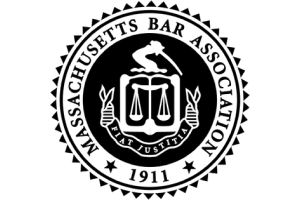Defense Lawyer
Felonies vs Misdemeanors
What’s the Difference Between a Felony and a Misdemeanor in Massachusetts?
Massachusetts Felonies Can Be Punished in State Prison. Misdemeanors Cannot.
Here’s the short answer. In Massachusetts, a convicted person can be sentenced to serve time either to state prison or in the county house of correction. If the crime you are accused of cannot be punished by a state prison sentence, it is a misdemeanor. If it includes a possible state prison sentence, it is a felony.
Just look at the particular law you are charged with in the Massachusetts General Laws for the words “state prison” and you will have your answer. If there is no possible state prison sentence written into the law, even if there is a possible house of correction sentence of up to two-and-one-half years (or less), it is a misdemeanor.
Our legislature defines felonies and misdemeanors in the General Laws of Massachusetts, at chapter 274, section 1. In a rare moment of clarity, our legislature wrote in section 1: “A crime punishable by death or imprisonment in the state prison is a felony. All other crimes are misdemeanors.” The death penalty has been abolished in Massachusetts state courts, but exists in the federal courts.
Understanding the difference between state prisons and houses of correction described above is therefore the key to understanding the difference between felonies and misdemeanors in Massachusetts.
Massachusetts’s two criminal trial courts, the district (or, in Boston, “municipal”) courts, and the superior courts, play an important role in the distinction between felonies and misdemeanors. The Massachusetts district courts cannot hear offenses that carry only a state prison sentence.
For example, murder in Massachusetts is a felony under Massachusetts General Laws chapter 265, section 1. A person convicted of murder in Massachusetts can be sentenced only to state prison. Therefore, only the superior court can hear a Massachusetts murder case. However, a person convicted of attempted murder in Massachusetts can be sentenced either to the house of correction or state prison. Attempted murder is also a felony under Massachusetts General Laws Chapter 265, section 16 because it carries a possible state prison sentence. However, either the superior court or district court can hear an attempted murder prosecution because it also carries a possible house of correction sentence as well as a state prison sentence.
So, in a nutshell, the district court can hear felonies that carry both possible state prison sentences and house of correction sentences at the trial level. The Massachusetts superior court has the power to hear any criminal prosecution at the trial level of a Massachusetts criminal case.
Felonies:
In Massachusetts, a felony is defined as a crime that can be punished by a state prison sentence up to and including life in prison. If the law that a person is charged with committing includes a possible state prison sentence, it is considered a felony in Massachusetts. Felony crimes involve drug and narcotics charges, arson, burglary, armed robbery, murder and/or attempted murder, rape and/or sexual assault, kidnapping and aggravated assault and battery. A felony conviction is a serious matter that can result in a substantial state prison sentence and the potential loss of certain privileges and Constitutional rights of U.S. citizenship, residence or other immigration benefits. A Massachusetts felony can also lead to loss of the right to possess a firearm or the right to vote, and loss of your job.
Misdemeanors:
In Massachusetts, a misdemeanor is defined as an offense that cannot be punished by a state prison sentence. Typical sentences for misdemeanors in Massachusetts include incarceration in the house of correction or periods of probation. Misdemeanors can be serious. Unlike felonies, which are ordinarily heard in state superior court, misdemeanors are usually handled by the district or municipal court.











